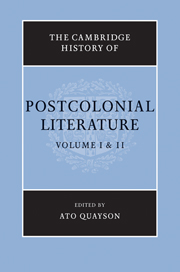
When I was about eleven years old and growing up in Accra my father’s cousin, with whom he was very close, lost his wife to a terrible car accident. Uncle Alfred (his name) was inconsolable. A couple of days after the news, my father gathered us together to tell us that there was a tradition in our Akan culture that dictated that a bereaved person was to have someone close to them spend forty nights in the same room so that if he or she woke up suddenly they would have someone trusted to console them. So, my father came back from work in the early evening, prepared us dinner, and headed out around 9 pm to go and spend the night on a mat beside Uncle Alfred’s bed in another part of town. He would return home around 5.30 am the following morning to help get us ready for school then go off to work himself. The cycle was repeated forty times. The profound significance of this did not quite register on me until decades later. The expression of grief at the loss of friends and loved ones in Ghana is a subject of elaborate rituals and routines, as the story of my father and Uncle Alfred attests to, but in each of them the objective is both to free the spirit of the dead to depart in peace and also to remind them that they will always be with us.
We find many examples of grief in history and in literature. When Cicero lost his daughter Tullia to childbirth in February 45 BC, he was so distraught that he retreated about a month later to his villa outside Rome to be alone. We know how he felt because well into June he wrote deeply anguished letters almost daily to his friend Atticus back in Rome describing what he was going through. Cicero writes of losing all appetite, suffering extreme lethargy, feeling guilty and also intensely angry, and crying all the time. But this was no ordinary depression, because by the start of July he also drafted a consolatio to himself. He later wrote a disputation on Grief, one of the most profound discussions of the subject we have received from antiquity. Shakespeare’s Ophelia poignantly mourns with flowers the death of her father Polonius. That he was killed by Hamlet, the man with whom she had experienced the early pangs of young love intensifies her pain. For Baby Suggs, in Toni Morrison’s Beloved, what irreparably breaks her heart is that she can neither condone nor condemn Sethe’s terrible choice in sawing off the throat of her two-year old daughter to prevent her and her other children from being captured back into slavery. Baby Suggs’s large and generous faith collapses, and she takes to her bed to contemplate the colors on her bed quilt. “Blue. That don’t hurt nobody,” she says. “Yellow neither.”
As Aristotle writes in the Nicomachean Ethics, a large part of the good life (eudaimonia) depends on the enjoyment of philia, which denotes the sustaining mutual support and obligations of family and friends. The lethargy, confusion, near dread, and random tearfulness that we are experiencing in this era of enforced social distancing are all indices of our grieving. But they are also signs that in our deeply interconnected world we worry intensely not just about our own kith and kin but also about people we may never meet but for whom we feel deep compassion. Who does not feel moved on hearing the brave work of the medical workers in Italy? Or astonished at the suffering experienced by the millions of Indians on their messy exodus to their home states after a paltry four-hour notice from their federal government? Or shudders at the sobering drone images of mass graves in New York to cope with the exponential number of Covid-19 deaths? While each of us may grieve differently, everywhere the pulse of the world beats as one as we mourn the loss of what we collectively shared but took for granted.
Forthcoming by this author: Tragedy and Postcolonial Literature publishing 2021.

Latest Comments
Have your say!